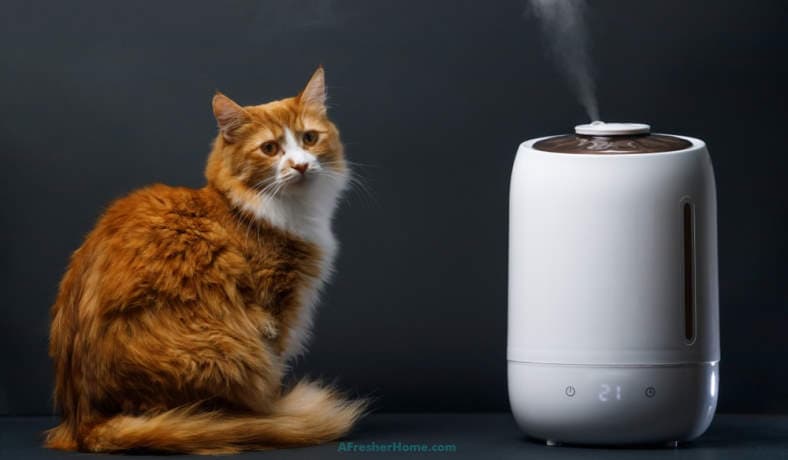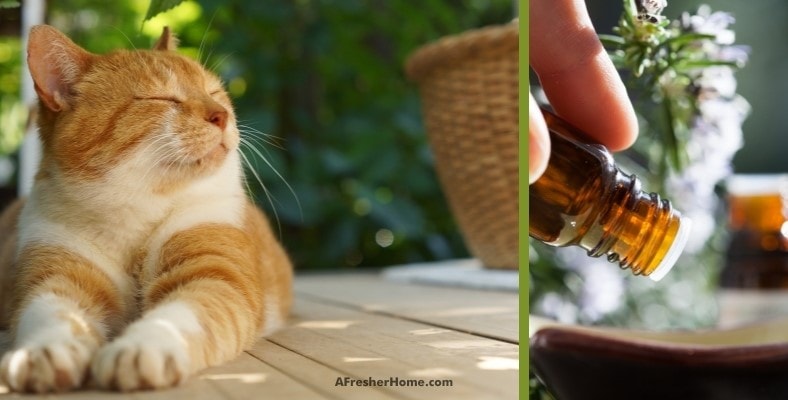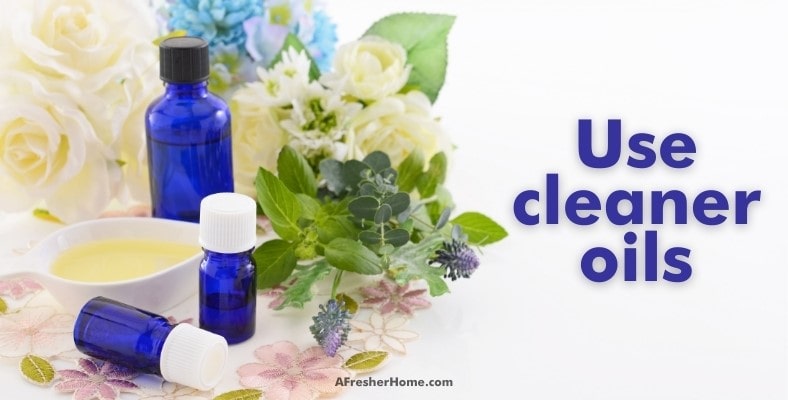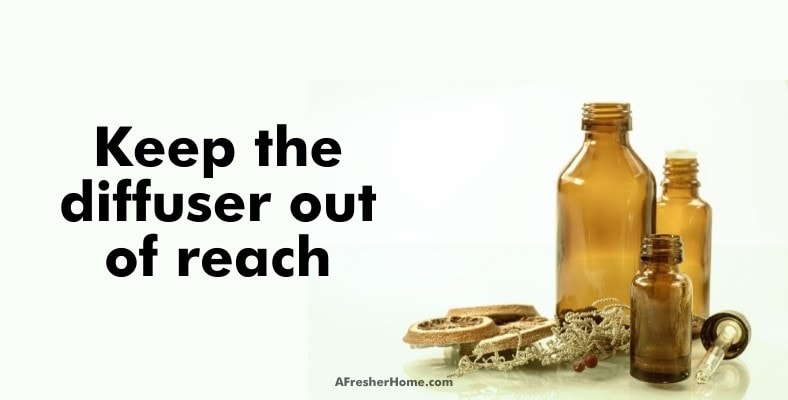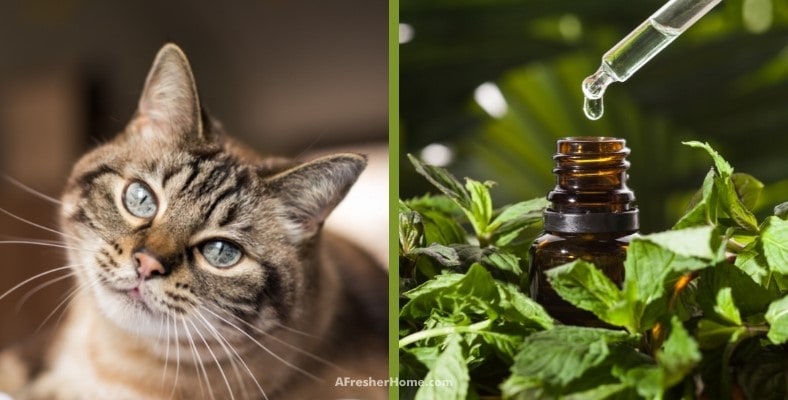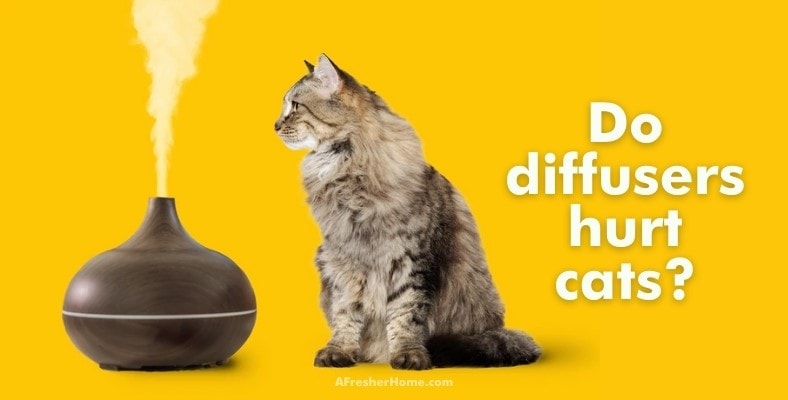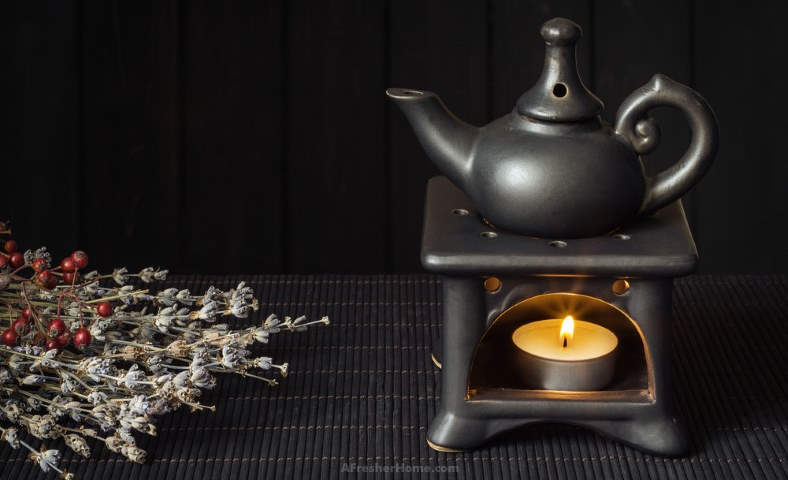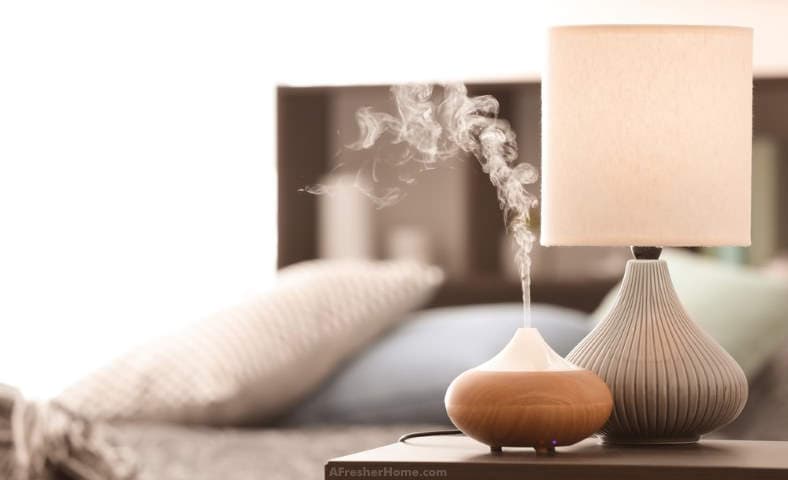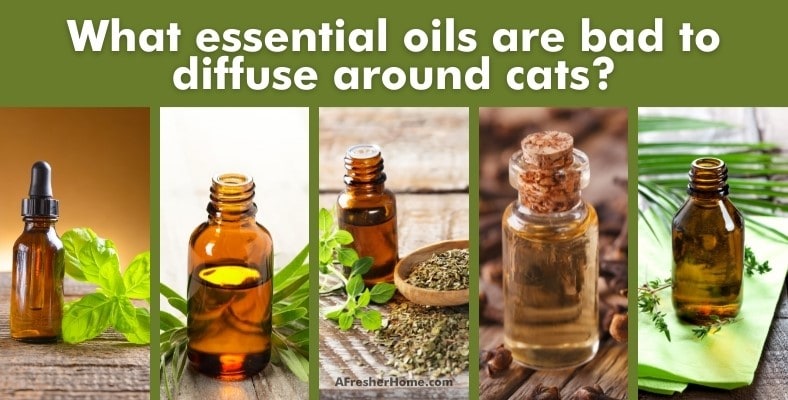Contents
Can I Diffuse Oils Around My Cat?
Yes, it’s generally safe to diffuse essential oils around your cat but you’ll need to take a few precautions including avoiding certain ones. (We’ll cover what essential oils are bad for cats further below)
For example, you should open some doors to make sure you’re not trapping your kitty in the vapors. Also, if your cat has a pre-existing medical condition, it’s best to speak to a vet before you start diffusing essential oils around them.
Here are some things to know to help keep your feline friend safe when diffusing oils:
Don’t let your cat touch the oil
This one may seem obvious, but it’s easier than you might think to absentmindedly pick up your cat for a cuddle after turning on the diffuser.
After handling any essential oils you’ll need to wash your hands (and change clothes if necessary) before petting your cat.
Use cleaner oils
Many essential oils are quite powerful and come in a concentrated form. But you can also find prediluted essential oils that provide a cleaner, less heavy scent.
While these are usually marketed toward children, your cat can benefit from this dilution too. If you don’t have prediluted essential oils you can just dilute them yourself by adding a bit of water.
Store them in a safe place
When you’re not using your oils, make sure they’re kept far away from curious noses. It’s always best to double check the screw cap after use as this will prevent any stinky spillages.
Keep the diffuser out of reach
If you have a specific room in your house where you normally diffuse oils, you should try and keep your cat out of there whenever possible. While it’s unlikely to cause them any harm, there should always be an open door so they can get fresh air whenever they want to.
Can essential oils kill a cat?
Thanks to a now-deleted social media post claiming that “essential oils can kill cats” going viral the rumors and misinformation have spread like wildfire.
However, this post has since been debunked as it is believed that the poster’s cat has a specific intolerance to essential oils. Not all cats are the same so you should take your cat’s health into consideration before diffusing essential oils at home.
Essential oils aren’t considered fatal to cats but they are more sensitive to certain essential oils. As long as you proceed with caution and use some common sense, your cat should be completely fine.
If your cat comes into direct contact with essential oils they may lick themselves and ingest the oil. This has the potential to be toxic.
The level of toxicity will depend on the specifics of your cat and the substance itself. If your cat has accidentally ingested some essential oils and you have any concerns, you should contact either your veterinarian or call poison control.
If you do decide to do this, the toxicologist will need the following information:
- The exact product (no two oils are the same)
- The amount you think was ingested
- Your cat’s breed and weight
- How and when the exposure occurred
Do diffusers hurt cats?
The most popular way to enjoy aromatherapy is to diffuse essential oils in a nebulizing diffuser. Inhaling essential oils through the respiratory pathways can help relieve a variety of mental and physical disorders in humans.
Using an oil diffuser for a reasonably short length of time in a safe area that your cat can’t get to is unlikely to be a problem.
But if your cat is in bad general health or has a history of respiratory issues, it may be best to avoid using diffusers entirely. Remember that cats have a far stronger sense of smell than humans do so what smells light to us may be overwhelming to them.
The type of diffuser used can also have an impact on the level of risk posed to cats. The most common types are passive diffusers and active diffusers.
Passive Diffusers
This category refers to any diffuser that evaporates oils. This can range from a basic tealight candle oil burner to a plug-in electric oil or wax melt burner.
These “traditional” burners have been around for a while and as long as they’re kept out of reach of curious paws, they’re relatively safe to use around cats. However, passive diffusers can cause problems to cats that suffer from pre-existing respiratory issues.
While not considered “dangerous,” inhalation of strong odors can make some cats’ eyes swell and water, they may even show difficulty breathing.
Active Diffusers
These are considered more dangerous than passive diffusers. They’re a lot newer and have only recently started to become popular, so the research and evidence on how they affect cats are scarce— or rather, non-existent.
They diffuse microdroplets and particles of oil into the air using electronic devices built into them. This type includes both nebulizers and ultrasonic diffusers.
It’s possible for droplets from these diffusers to fall onto your cats’ skin and be absorbed directly or they can get on their fur to be swallowed when they groom themselves.
What essential oils are bad to diffuse around cats?
There are a few specific essential oils that aren’t great for cats. In fact, some can be toxic. This is usually because they’re high in salicylates or phenols.
You should avoid diffusing the following oils around your cat:
- Basil
- Cinnamon Bark
- Clove
- Laurus Nobilis
- Melaleuca Quinquenervia
- Mountain Savory
- Oregano
- Tea Tree
- Thyme
- Wintergreen
On the other hand, some essential oils that are considered safe to diffuse around your cat include frankincense, copaiba, helichrysum, and lavender.
Remember: you should only use essential oils that are genuine and free from nasty chemicals. Essential oils aren’t regulated by the FDA so many companies print the words “pure” and “100% natural” on their products even if it’s not true.
Be sure to always double-check the ingredients before diffusing them around your cat. Try to only use pure therapeutic grade essential oils in your diffuser.
You should never use a cheaply processed, untrusted brand of essential oils, even for your own aromatherapy.
